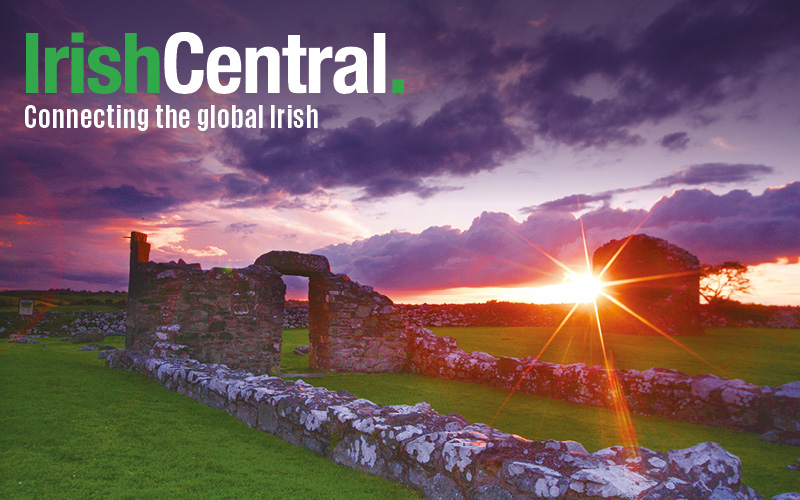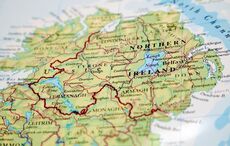New Border Force roles advertised in Northern Ireland by the British government are only open to those with a British passport.
Fears have been sparked over the prospect of a hard border between Northern Ireland and the Republic of Ireland when Britain leave the European Union in March 2019 after it emerged that new Northern Ireland Border Force roles will only be open to those with a British passport.
Under the terms of the Good Friday/Belfast Agreement, which celebrated its 20th anniversary on April 10, 2018, citizens of Northern Ireland can claim British or Irish citizenship or both. Only British passport holders will be entitled to apply for 21 new Belfast-based roles on the Border Force, however, fuelling fears that a “hard border” will be put in place, impacting travel and trade between the North and the Republic.
"As we prepare to leave the EU, it is vital that we continue to ensure operational resilience at the border,” said a spokesperson from the UK Home Office.
"The home secretary announced last month that Border Force was launching a nationwide recruitment campaign for officers across many of its port and airport locations.
Read more: British vote for Brexit was doing the right thing for them

British passport. Image: iStock.
"This campaign will largely replace individual recruitment rounds to specific roles. It will meet a range of business needs, including meeting the normal staff turnover associated with a large operational business such as Border Force.
"It will also support Border Force to respond flexibly to emerging requirements, including any future requirements as a result of EU exit.”
While a mass recruitment drive is looking to fill hundreds of roles around the UK, 16 Border Force officers and five Border Force assistant officers are sought in Belfast.
The British-passport-only requirement for these roles has been branded as "exclusionary and chilling" by Claire Hanna, a Member of the Legislative Assembly for the Social Democratic and Labour Party (SDLP). Hanna called on the British government to "spell out clearly what form of a border they anticipate these employees to be guarding."
"Having failed to put forward any serious ideas for how to address Brexit, it appears that the UK government are now finally doing some planning but for the one thing they promised to avoid,” said Hanna.
"They should spell out clearly what form of a border they anticipate these employees to be guarding.
Read more: This is how the war will restart in Northern Ireland if Brexit creates a hard border
.@ClaireHanna branded the British passports only criteria 'exclusionary and chilling' – and called for the UK gov to 'spell out clearly what form of border they anticipate these employees to be guarding'.https://t.co/fEW0TmZCJu @irish_news @politicsIN #Brexit
— Brendan Hughes (@brendanhughes64) April 16, 2018
"The apparent bar on Irish passport holders applying is exclusionary and chilling, and likely to be in breach of fair employment guidance.
"In a post-Brexit scenario, what other jobs or services are to be reserved only for, as the Home Office has put it, those with 'special allegiance to the Crown'?"
The British Border Force carries out customs and immigration checks on people and goods entering the UK. With a salary ranging between $29k (£20k) and $39k (£27k), the roles are described as “reserved posts” meaning "only UK nationals may be employed" and "under no circumstances may any other nationals be employed in reserved posts."
I find it worrying that only British passport holders are permitted to apply for new Border Force jobs being established in NI in preparation for Brexit. Why not also Irish passport holders? Both nationalities+citizenships reside in NI+are recognised in NI-allowed so by the GFA.
— Leah | Léá Ní Riabhaigh ?? (@MissTwice) April 16, 2018
According to the 2011 census, a quarter of the passports held in the North are Irish although this percentage may have risen with a large number of Northern Ireland citizens choosing to acquire an Irish passport in the wake of the Brexit referendum vote. The demand for an Irish passport rose so much in the immediate aftermath of the referendum that locations in Northern Ireland ran out of application forms.
Both the Irish and British governments and the EU have spoken of their desire to prevent a hard border being implemented in Northern Ireland, although a strategy for how this will be avoided is yet to be decided as Brexit talks continue.
What do you think should happen with the Irish border? Let us know your thoughts in the comments section, below.
H/T: Irish News




Comments